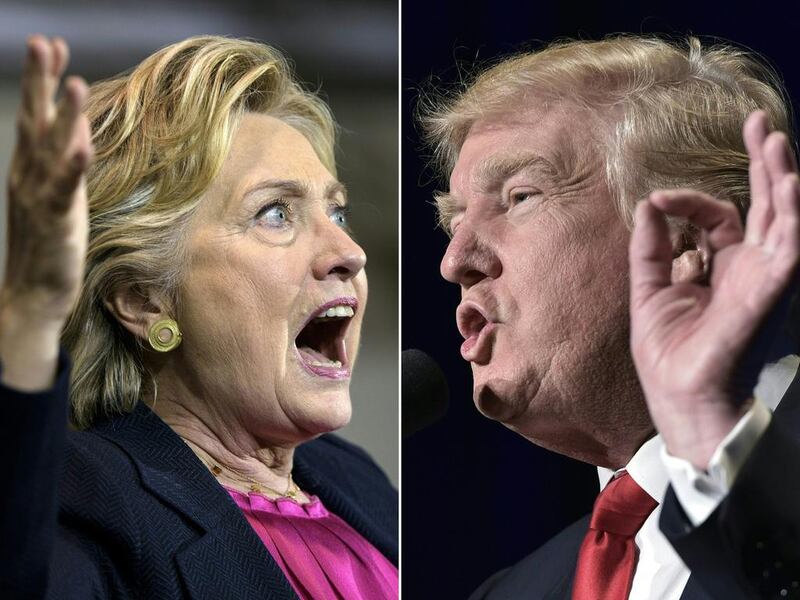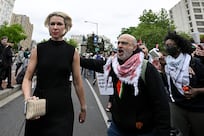A legal definition of fake news is needed to help block adverts appearing on sites which publish factually inaccurate content, say advertisers.
A senior figure in the advertising industry has told British MPs that clearer rules around what constitutes fake news are needed if adverts are to be prevented from being placed next to disingenuous content.
If advertisers can block adverts appearing on sites pushing false information, they will be able to strangle the cash flows that provide the impetus of many fake news publishers.
One of the most infamous incidents of fake news saw teenagers from the small Macedonian city of Veles pump out fake pro-Trump news during the US election campaign. Some of the teens say managed to make thousands of pounds a day through advertising revenue generated through their websites.
This intervention from advertisers comes as the leading US think tank Rand Corporation Tuesday warned that “Truth Decay” was a major social trend that was undermining trust in institutions. It said the drivers of the problem included the rise in social media use amid increasing political, demographic and economic polarisation.
Fake news is broadly identified as deliberate misinformation or hoaxes presented as truth but there is no national or international ruling of the phenomenon.
Advertising agencies and clients privately define parameters for themselves in a bid to protect their reputations of their clients. One agency has up to nine different categories of ‘fake news’.
Bethan Crockett, senior director of brand safety and digital risk at GroupM told the British parliament’s Digital, Culture, Media and Sport Committee that external standards were needed.:“It is difficult because we don’t have that legal definition of a ‘fake news site’,” she said. “We end up in this weird space where really we would like as an industry a definition of fake news which is about those sites which are deliberately and intentionally sharing misinformation with the aim of influencing in some way and undermining public security and public institutions – and would not try to pull in the click bait and sensationalist headlines which have always existed and are used by tabloid press to gain readership and have a fun headline to attract readership.”
Ms Crockett explained that advertising agencies are limited in how effective they can be in ensuring advertising does not appear next to fake news articles.
____________________
Read more
[ Macron faces criticism after proposal to combat fake news ]
[ How Facebook's newsfeed change will affect you and businesses ]
[ YouTube limits Logan Paul vlogs ]
____________________
“If we have clearer guidelines and yes that would count as that type of fake news then we can build the technology to look for that and to validate that and create those blacklists and blocklists that people can use across the board,” she continued.
Damian Collins, chair of the committee, asked who should be responsible for creating the strict definition and whether the industry should take the lead on it.
Ms Crockett says without a legal definition it’s much harder to enforce, someone can say legally you can’t enforce it.
“Fake news right now we can have a definition that we all commonly agree on and look for those traits, but I could also easily be pursued by one of those sites saying you don’t have the right to block and where is the legal standpoint for this,” she explained, cautioning that sites may argue they are being commercially undermined if advertisers choose to block them.
There are many guises of disinformation. Clickbait, which is the use of a misleading headline or social media post encouraging readers to click through into the rest of the story, and sensationalised headlines can veer into the realms of what is thought of as fake news but are seen as not as damaging or deliberately made-up content.
In French president Emmanuel Macron’s New Year’s press conference earlier this month, he announced the proposal of a new law to prevent the spread of fake news online.
The bill would crack down on those spreading misinformation during any election period and add to France’s existing laws in which caught disseminating false information “by whatever means” in a way which disturbs the public peace is punishable by a fine of up to €45,000 ($55,000).
On the eve of the German federal election last September, Germany’s parliament passed a law which requires social networks such as Facebook, Twitter, and YouTube to remove all illegal content posted by users 50 million euros. This law, which came into force on January 1, 2018, includes hate speech as well as disinformation. Italy’s government, which is holding general election in March, has also proposed a bill to taking aim at fake news.
Ms Crockett says it is impossible to guarantee that adverting content won’t ever appear next to fake news because of the sheer volume of information online but if a strong legal definition was put in place it would help target the technologies they use and make them more effective.
GroupM, which claims to be the world’s largest advertising media company, uses its own catalogue of technologies and operations to prevent brands being served alongside illegal or inappropriate content.
Steps such as using technology to check quotes and facts on webpages, as well as analysing IP addresses (the label belonging to a device connecting to the internet), help make up lists of sites that show signs of pedalling fake news.






